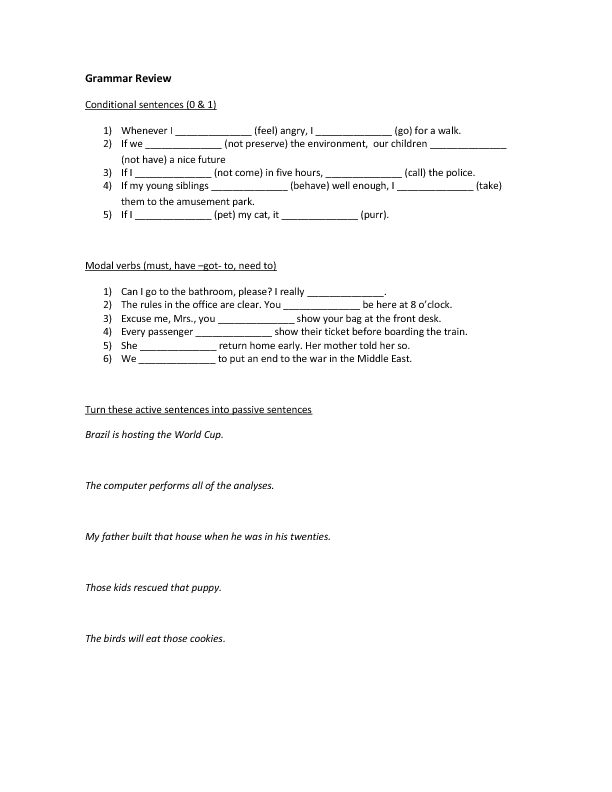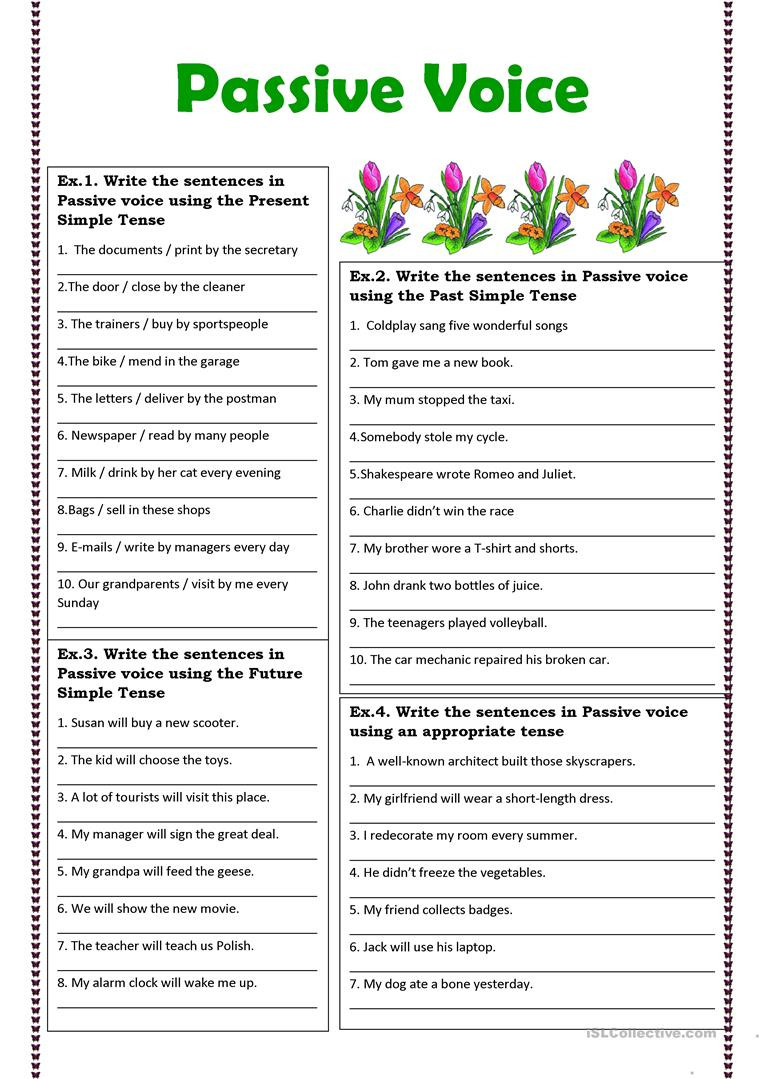

Hence the verb is “wird” and not “werde.”] Thus the verb is in the 3rd person singular by default, not in the first person [Note that “mir” is dative and so cannot be the subject of the verb: the subject of a verb is always in the Nominative. The subject in impersonal passive constructions is always assumed, by default, to be the third person singular–in other words, if a passive sentence has no grammatical subject ( nothing in the nominative for the conjugated verb to agree with), then the conjugated verb will automatically be in the third person singular. This is referred to as the impersonal passive. Sometimes a passive sentence will have no grammatical subject, or only the “dummy subject” es.The grammatical subject of a passive sentence is the person or thing that the action is being done to: “ Der Pudding wird gegessen.” Since the dative preposition von is usually used to state the agent, the agent will usually be in the dative if it appears in the passive sentence at all: “Der Pudding wird von mir gegessen.”.The animal shelter is financed by means of donations.ħ5% aller neuen Wohngebäude werden mit Gas geheizt.ħ5% of all new residential buildings are heated with (using) I am systematically persecuted by idiots.ĭas Tierheim wird durch Spenden finanziert. Ich werde systematisch von Idioten verfolgt. If in doubt, you should always choose von, which is rarely wrong. When you do, use von, or occasionally durch (roughly corresponds to “by means of” in this context) or mit (roughly corresponds to “using” in this context).

But sometimes you do want to state the agent in a passive sentence.
#PASSIVE OF MODAL VERBS EXERCISES HOW TO#
Der Müll ist nach Kanada katapultiert worden.Ĭlick here for the full table and more info on how to form statements in the passive.Der Müll wird nach Kanada katapultiert.Notice how in the following table it is only the forms of werden that change as the tense changes: To change the tense of your passive sentence, change the tense of werden. The passive is formed in German by combining the appropriate conjugated form of werden with the past participle of the main verb.This is also the case in German, but to a lesser extent.Ĭlick here for a slightly more detailed explanation of the uses of the passive In English, writing teachers strongly encourage their students to use the active voice in order for their writing to be more direct, forceful, and readable.You are more likely to see the passive in formal contexts than in informal contexts.Euphemisms of various sorts, such as politicians saying “taxes were raised” instead of “I raised taxes.”.if a crime has been committed but it’s not known who did it Nevertheless, there are some factors that make it more likely for you to see the passive, and these include:


Sometimes I get to say that the Lions made the Packers look stupid ( active), but a lot of the time I have to admit that the Lions $%^&* were kicked ( passive). This can happen in any context and at any level of formality: sometimes I want to say that Benz invented the gasoline-powered automobile ( active), sometimes I want to say that the gasoline-powered automobile was invented in 1885 ( passive).


 0 kommentar(er)
0 kommentar(er)
